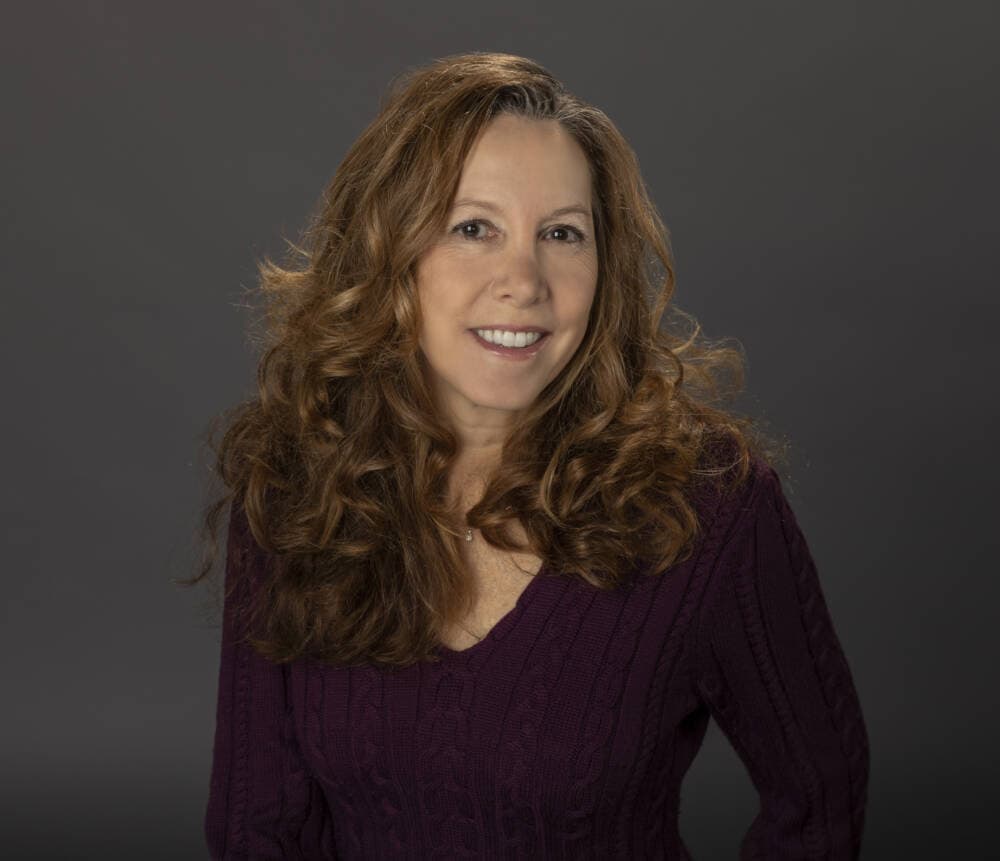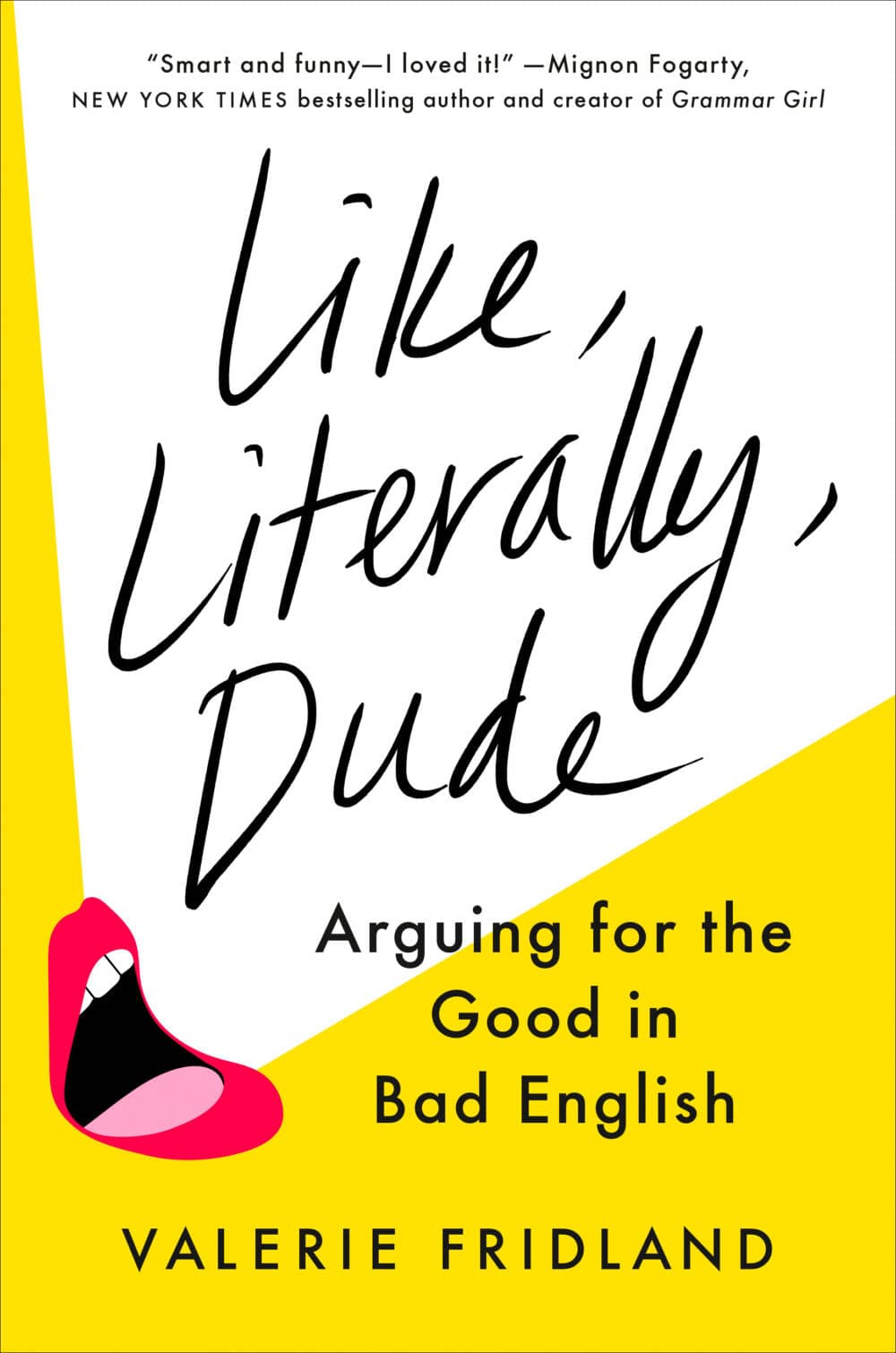Advertisement
'Like, Literally, Dude': Linguist makes the case for why 'uhs' and 'likes' belong in our language
Resume
It drives NPR listeners to send us angry emails and comments: ‘Um,’ ‘like,’ ‘dude.’
But University of Nevada, Reno linguist Valerie Fridland says these words are all a part of a beautiful, evolving language. She takes a deep dive into the history of over-used speech mannerisms in her new book, "Like, Literally, Dude: Arguing for the Good in Bad Language,” and discovers that they have much more value than we think.
At a bar in New York, Fridland once read a sign that said, “If you used ‘literally’ figuratively, you might as well just leave.”
“We are really upset by people that use ‘literally’ figuratively,” Fridland says, “which is funny because there's so much of language that we use figuratively without realizing that it once meant something different.”

Take the word broadcast, for example. In the 1850’s, broadcast meant to throw seeds. Today, it means to disseminate information — a metaphorical extension of its original definition.
Literally is now used as an intensifier, words like completely or horribly that amplify what someone is trying to say. The word very, for example, meant true or actual in old English but has since been semantically bleached, or removed from its original meaning.
“We don't remember when that happened. So [very] doesn't bother us,” she says. “‘Literally’ is still in the process of doing that. And that's why it bothers us.”
‘Ums’ and ‘uhs' don’t just fill pauses, Fridland argues. These words unconciously signify the introduction of a new topic or a complex idea, yet people work hard to get rid of these underrated speech features
“They signal when a speaker is doing some very heavy cognitive retrieval. ‘Uh’ or ‘um’ seem to appear more often before hard words, less common words, also abstract words or very, very complex sentences,” she says. “So that's a pretty good indicator that someone's working hard in their conversation with you.”
Then there’s vocal fry, which some public radio listeners hate so much that “This American Life” devoted an entire segment to letters they received complaining about it.
Studies prior to 2000 looked at vocal fry as more prevalent in men’s speech than women’s, and associated it with carrying authority. Vocal fry originated among British men — but it became an “epidemic” once women adopted in the 2000s, Fridland says.
“Vocal fry is actually an attempt by women to please the naysayers who don't like the high pitched squeaky women's voice, long described as shrill or high pitched or squeaky, and especially in broadcasting,” she says. “It seems like this idea of vocal fry being a negative thing only occurred when women started to adopt it to slightly lower their pitch to come across as more professional and authoritative.”
Women’s voices have always been more policed than men’s. But research shows women and young people historically lead changes in language that everyone embraces over time, Fridland says, such as ye to you and doth to does.
“The problem is that we also culturally tend to disfavor women's voices and have historically,” she says. “So this underlying cultural prejudice or bias we have about women's voices, particularly in professional spheres, affects how we view the features that they bring into language and affects how we see them as contributors to English.”
For people who identify as nonbinary, hundreds of pronouns were tried before ‘they’ organically developed as part of the language. It’s easier for people to adopt a new meaning for an existing pronoun rather than stick words speakers don’t recognize into the language, Fridland says.
And it’s not the first time: You used to refer to plural objects only, before it organically developed into its current use as a singular or plural subject.
“We can't force language,” Fridland says. “It has to evolve on its own.”
Emiko Tamagawa produced and edited this interview for broadcast with Todd Mundt. Allison Hagan adapted it for the web.
Book excerpt: 'Like, Literally, Dude: Arguing for the Good in Bad English'
By Valerie Fridland
From 'Like, Literally, Dude' by Valerie Fridland, published by Viking Books, an imprint of Penguin Publishing Group, a division of Penguin Random House, LLC. Copyright © 2023 by Valerie Fridland.
This segment aired on April 25, 2023.


